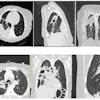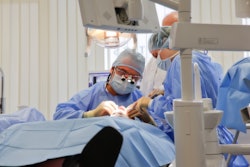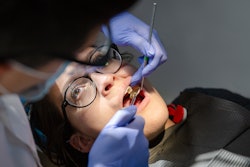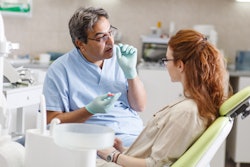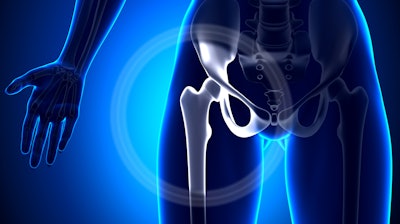
Since caries diagnosis or dental implant placement occurring a year before or after total hip arthroplasty (THA) were tied with increased complications and more, it may be advisable to delay invasive dental procedures. The study was published in the Journal of Arthroplasty.
Clinicians may want to counsel total hip replacement patients to take preventive antibiotics and consider delaying invasive dental procedures until one year post-arthroplasty. Further, this study represents one of the strongest case-matched studies to assess pertinent dental disease in total hip arthroplasty patients and postsurgical outcomes, according to this large 10-year retrospective study.
"By adopting these recommendations, we believe that total hip arthroplasty surgeons can decrease medical complications, improve implant survivorship, and decrease costs among these patients," wrote the authors, led by Dr. Michael Mont of the Rubin Institute for Advanced Orthopedics in Baltimore (J Arthroplasty, April 19, 2024).
Historically, orthopedic surgeons and dentists have recognized dental diseases or invasive dental procedures as possible risk factors for fleeting bacteria in the blood and infectious aftereffects that may seed any non-native joint, resulting in prosthetic joint infections. Regardless, research is ambiguous as to whether dental disease prior to hip replacement has an association with complications after surgery.
To understand possible associations, private claims data from Mariner, which is housed within the U.S.-based PearlDriver Bellwether Platform, between 2010 and 2021 were analyzed. The analysis included 1,179 patients who had implants or caries within one year prior to total hip arthroplasty or 1,218 who had tooth decay or implants one year after hip replacement that were case matched with 6,090 patients who had no dental history. Researchers reviewed 90-day complications, 90-day readmissions, and two-year implant-related complications as outcomes and then regression models were computed. P values less than 0.006 were considered significant, according to the study.
Patients who had caries or implants placed 12 months before or after hip replacement experienced a 1.6-fold greater odds of 90-day medical complications compared to case-matched patients. In patients with dental histories before hip replacements, readmissions increased within 90 days (11.7 versus 8.3%; odds ratio [OR], 1.49; p < 0.0001). Also, it increased for those with dental diseases after arthroplasty (14.2 versus 8.3%; OR, 1.84; p < 0.0001), the authors wrote.
Additionally, being diagnosed with caries or having an implant placed within one year following total hip arthroplasty raised two-year implant complications (15.2 versus 9.3%; OR, 1.69; p < 0.0001), including prosthetic joint infections (5.3 versus 2.8%; OR, 1.98; p < 0.0001), dislocations (4.4 versus 2.7%; OR, 1.63; p = 0.002), and hip replacement revisions (3.9 versus 2.5%; OR, 1.61; p = 0.005), they wrote.
Moreover, the study had limitations. Direct causality could not be determined; therefore, results should be interpreted in the appropriate context, the authors wrote.
"Addressing patient dental histories in the preoperative period may assist total hip arthroplasty surgeons in minimizing the morbidity and mortality associated with implant-related complications in this group of patients," Mont et al wrote.

